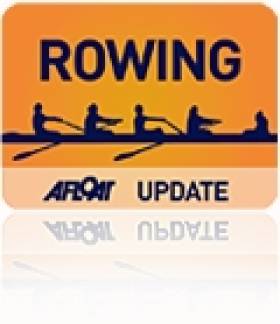Displaying items by tag: aquatic sports
Irish Aquatic Sports Off Target for Olympic Spots
Ireland's aquatic sports are way off target for qualification for next summer's Olympic Games, according to performance heads.
“The reality is we’re no better than a 50-50 chance of qualifying a crew," said Rowing Ireland performance director Martin McElroy, who has been putting his focus on the men’s lightweight double scull, the women’s lightweight double scull, and the women’s open double scull.
The Irish Times reports that just two Olympic spots in each category remain, to be decided next May at the Lucerne Regatta.
McElroy lamented that Irish rowing is "missing a generation of athletes".
He added: "What has happened in rowing is the budgeting is usually year on year, and so the senior crews get the spotlight, and the danger with that is you lose sight of the under-23s, who need to serve their apprentice."
Hopes for Olympic medals rest with sailing, with James O'Callaghan of the Irish Sailing Association delcaring that its goal "is to have an Irish team stand on the podium in London".





























































